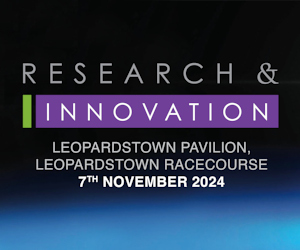Irish company Skytek to host major space meeting in Dublin

Astronauts and other space experts are gathering in Dublin this week for a major think tank about the International Space Station (ISS), and Irish company Skytek is hosting the event.
In Ireland we occasionally get an astronaut or two passing through, but this week several will assemble in Dublin as part of a working group to discuss future technical requirements for the ISS.
Officially called the Operations Data File (ODF) and International Procedure Viewer (iPV) Working Group, the gathering will include not just astronauts but also space managers and scientists to talk about work programmes and plans for the ISS, which orbits Earth and supports crews who live aboard and carry out scientific experiments.
“It is the first time the meeting is taking place outside of one of the space agencies’ own facilities,” says Dr Sarah Bourke, CEO of Irish software development company Skytek, which is hosting this week’s events.
Skytek’s CTO Paul Kiernan explains that the meeting “helps defines the future direction that technology to support astronauts on board will take over the next few years, especially of interest now with the emergence of new wearable devices and mobile platforms.”
And although the focus of the meeting will be on ISS requirements and will not be open to the public, Skytek is also organising a public lecture by astronaut Leopold Eyharts tomorrow evening in Dublin’s Science Gallery.
Skytek, which is based in Dublin, developed technology called the International Procedural Viewer, or iPV, that has been aboard the ISS since 2005. The software runs on laptops deployed throughout the ISS, and it allows the astronauts to view procedural information about tasks and experiments, explains Bourke.
“It has all the information they need,” she says. “Our system assists them as they do their work on board – if they have a scientific experiment the system walks them through the process, or if they need to do a spacewalk it tells them the procedures that should be followed.”
The company is now working to deliver the system through other platforms on the ISS, such as tablets and wearables, and on expanding the voice-commanding capabilities.
As well as ensuring that astronauts can access the information they need, Skytek has also been working with clients who are a little closer to sea level.
“We have been adapting our technology for use in other industries,” says Bourke. “We developed a satellite-enabled communication system with Dublin Fire Brigade, we have just completed a system with the Irish Navy and the technology is now being adapted for aircraft maintenance.”
This week is a busy one for Skytek, as it also sees the launch of its new ‘space weather’ division, which will work with astrophysicists at Trinity College Dublin to gather and analyse data about solar flares and other events at the sun’s surface that could potentially disrupt satellites and power grids on Earth.
Skytek’s space weather division is being set up to react to the growing threat of solar storms and other space weather phenomena, according to the company, which will provide both consultancy and research in the area.
And in a case of particularly good timing, the news comes hot on the heels of a large burst of solar activity just last week.
The hosting of this week’s meeting in Dublin reflects the long-standing engagement by Skytek with theEuropean Space Agency in developing software solutions for use by the crew of the ISS, according to Tony McDonald, space programme manager in Enterprise Ireland and a member of the Irish delegation to the European Space Agency (ESA).
“It also reflects on the quality and performance of Irish technology in supporting mission-critical activities for ESA and (US space agency) NASA,” he says. “This technology also has multiple applications in non-space markets, such as aerospace and emergency response (and) Skytek is an excellent example of a growing number of Irish technology companies developing highly innovative technologies for the space market, in line with the national strategy for Ireland’s membership of ESA.”








There are no comments at the moment, do you want to add one?
Write a comment